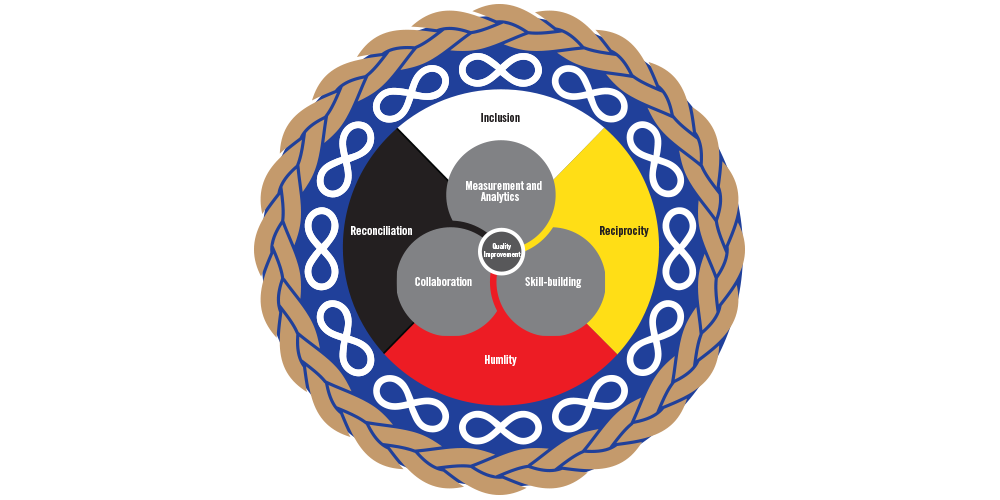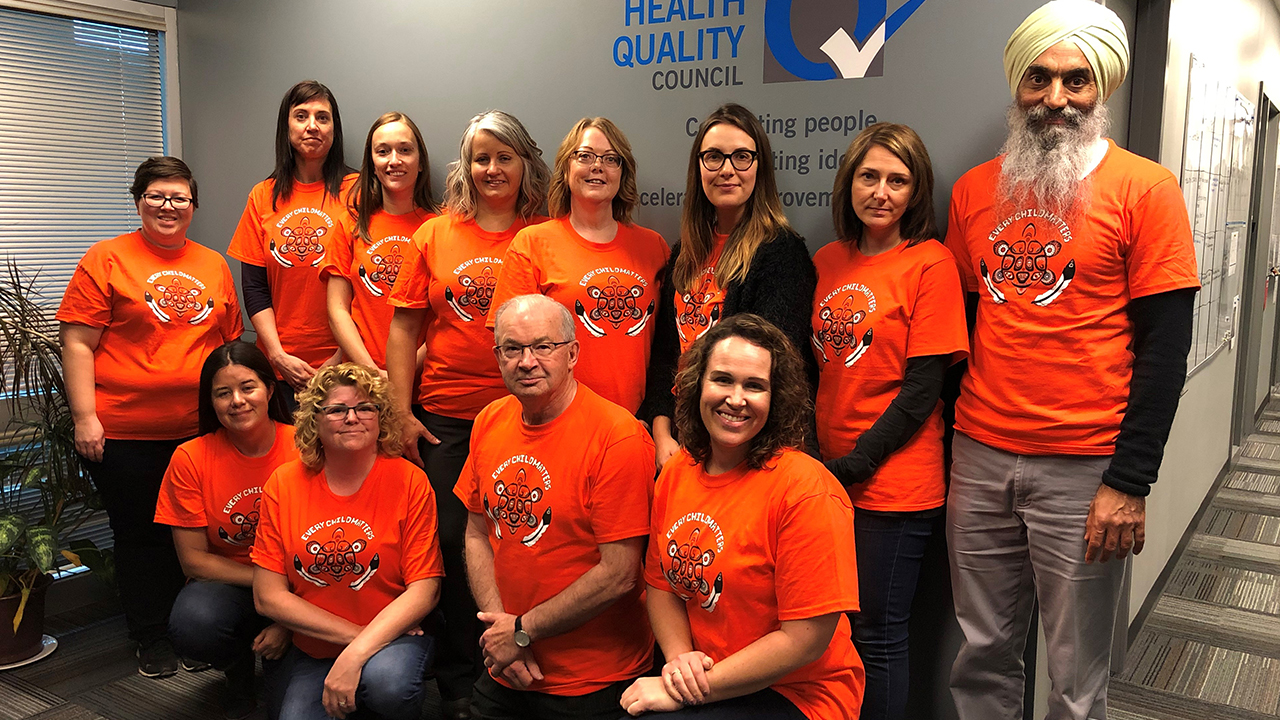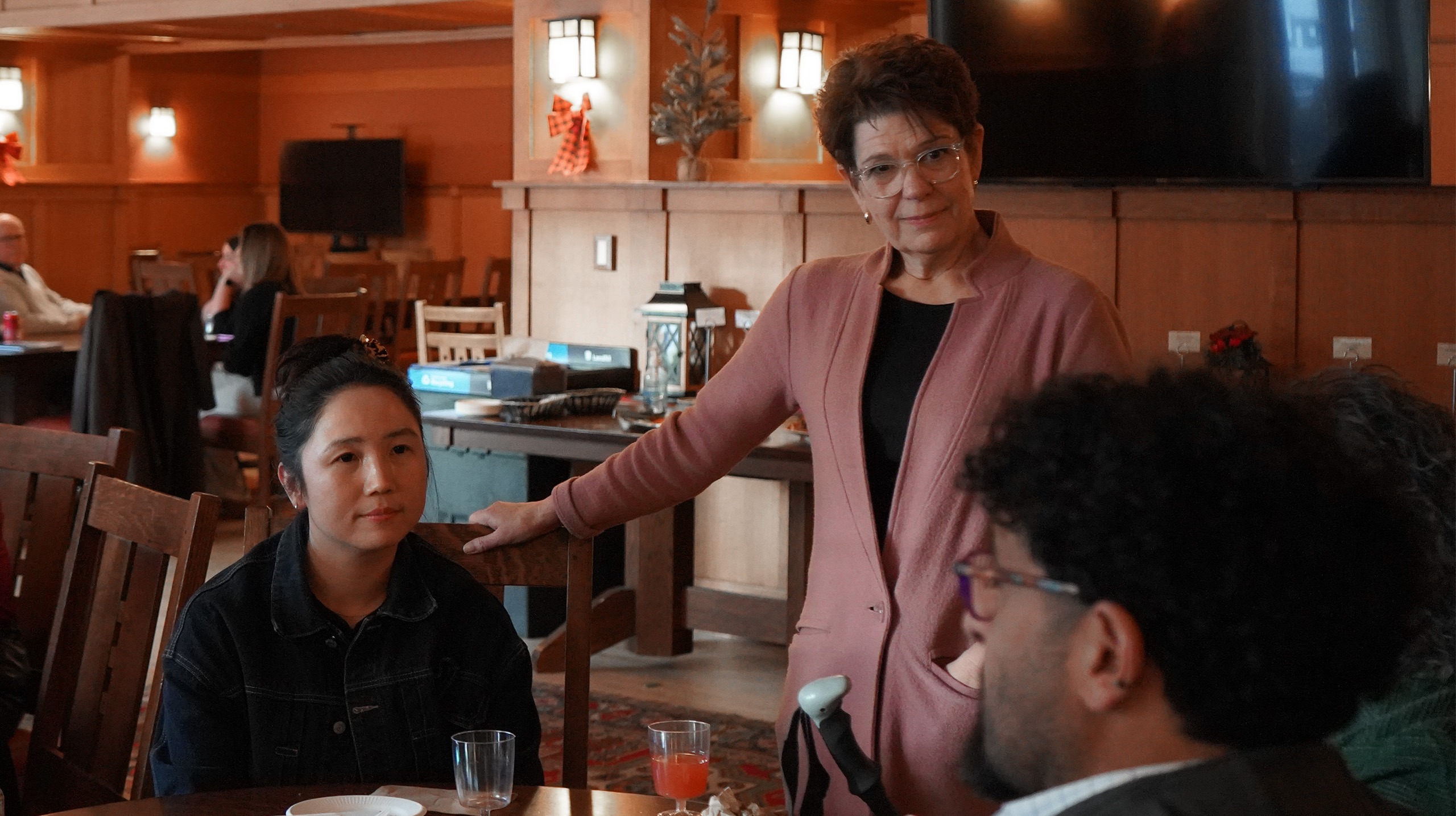In the spirit of Truth and Reconciliation, HQC is starting a series to share our reflections and learnings on the subject. Each quarter, we will share a blog from our work as we continue to learn more about equity in health care and how to become a more culturally responsive organization.
Our first edition is a Q&A featuring our CEO Tracey Sherin.

Let’s start off: What does culture mean to you?
The definition that resonates with me most is that culture is a way of life for a particular group of people: values, arts, food, customs, beliefs, worldviews. The other aspect that is interesting is that a culture could be a society, group, place or time—in this sense, a person could be part of many cultures at once. For example, a person could be part of an Indigenous culture, while also being part of youth culture and 2SLGBTQIA culture.
Why is HQC working to become more culturally responsive?
We want people of any culture to feel like they belong at HQC. It is important to us, as an act of reconciliation, to honour and respect the cultures of Indigenous peoples with whom we share this land.
What does being a culturally responsive organization mean?
People of any culture feel like they are welcome and that they belong at HQC—whether they are staff, contractors, collaborators or visitors.
Our end vision is to have cultural responsiveness embedded into our operations—so that practices, policies and projects reflect the diversity of cultures that make up our workforce and the population we serve.

What has HQC done to be more culturally responsive?
HQC has set out on many ways to increase its cultural responsiveness, many in alignment with the Truth and Reconciliation Commission Calls to Action.
As part of our 2019-2024 strategic direction, HQC committed to working in partnership with Indigenous Peoples with the goal of enhancing First Nations and Métis health and well-being in Saskatchewan. To be authentic and grounded in the true meaning of reconciliation, and to further support the execution of this strategic focus area, we recognized the need to commit to working in new ways that conscientiously support and promote cultural humility, safety, and responsiveness. This includes providing an environment that recognizes the importance of culturally ethical space and engagement of Traditional Knowledge Keepers and Elders to help guide HQC’s strategy.

To that end, HQC established a Cultural Advisory Committee to provide guidance on our organizational policies and projects, including working in a respectful way with Indigenous partners. In this area of work, we follow four guiding principles: inclusion, reciprocity, humility and reconciliation.
With this piece of our strategy in place, we engage with communities to learn how the health system can better meet their needs and support them in accessing and understanding their health data. This is showcased in our recent partnership with FSIN, where HQC conducted research on the quality of care received by First Nations people in Saskatchewan related to suicide and self-harm. This research helps to identify opportunities for improvement as well as promising practices that can be spread to improve outcomes.
From a human resources perspective, we want to equip our staff with the resources to practice cultural responsiveness in their area of work. Staff are offered cultural humility awareness training through the University of Saskatchewan. Aimed at those in the health sector, the course explores beliefs and cultures, racism in health care, intergenerational trauma and advocating for cultural responsiveness for Indigenous Peoples.
Additionally, our staff working in research and analytics are provided OCAP® (ownership, control, access and possession) training. These principles, based on data sovereignty, asserts that First Nations have control over the data collection processes, and they own and control how this information can be used.
What is the one thing that HQC has done that you are most proud of in the culturally inclusive space and why?
I am proud that we have created a culture where we can learn, share and ask questions in an open and respectful way. We can admit what we don’t know, what we’re curious about and what we’d like to learn more about.
How does an organization know if they are closer in becoming culturally responsive?
There are so many different ways of knowing—something we have learned as part of this journey! Here are some ways that we are using right now.
Anecdotally, we hear feedback and stories from staff and those we work with, including our partners. We learn what their experience has been and how we could adjust or modify our processes to improve. As a quality improvement organization working in the health space, this kind of information is immensely valuable—it is important to walk the continuous improvement talk.

We have also been using a framework to assess ourselves each year and using the results to identify areas we can improve. The framework looks at five domains to ensure we are looking at all aspects of how we work:
- administration and governance
- human resources, staff training and development
- policy, quality assurance, risk and legal
- communication and community relations
- planning, monitoring, evaluation and research
At HQC, we love data and analyses, so we also make use of metrics, including how many staff attended cultural responsiveness training, how many policies were reviewed and revised, and the number of culturally responsive resources available on HQC’s website.
Other groups or organizations might be looking at this differently or using another approach. We’d love to learn from others who are doing similar work.
If you could give one piece of advice to other organizations or people struggling to know what to do in this space, what would you say?
First and foremost: Start! Don’t spend a lot of time trying to find the perfect first steps or planning the perfect launch. This is a journey and will take effort and time. Pick something that is meaningful to your organization and do it, then make changes as needed along the way.
In a similar vein, be open to learning about and trying new policies, processes, and ways of doing business in your organization. This process is about change—so be prepared to both learn about what is responsible and respectful, and “unlearn” what isn’t.
Top photo: HQC staff mark Orange Shirt Day in 2019.
Resources




